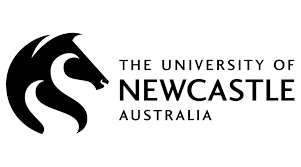University of Newcastle’s early career cancer researchers receive grants
On the eve of World Cancer Day on 4 February, three University of Newcastle early career cancer researchers have been awarded grants to support their work investigating blood and gynaecological cancers.
Dr Danielle Bond, Dr Heather Murray and Dr Shafiq Syed are among the 13 researchers Australian organisation Cure Cancer selected to support in 2023. Cure Cancer funds early-career cancer researchers, giving talented young scientists the opportunity to make an impact with their innovative and ground-breaking ideas.
Dr Danielle BondAcute myeloid leukaemia researcher Dr Danielle Bond is working to improve treatments for acute myeloid leukaemia.
“Being awarded a Cure Cancer grant means that not only do I see value in my research, but so do my peers and community,” Dr Bond said.
“This funding will allow me to continue researching new and improved ways to treat blood cancers, using treatments that are already approved for other diseases.”
Dr Heather MurrayFellow blood cancer researcher Dr Heather Murray is investigating a novel approach to overcome acute myeloid leukaemia treatment resistance.
“Our early-career researchers are the future of research. We need to support them to build a strong foundation for the future,” Dr Murray said.
“Dedicated funding bodies like Cure Cancer give early-career researchers the support they need to be able to compete with more senior researchers.”
Gynaecological cancer researcher Dr Shafiq Syed is ‘focusing on defining the molecular pathways involved in the normal functioning of the female reproductive tract and the pathogenesis of endometrial cancer’.
“During my PhD, I was able to locate and identify the cells of Dr Shafiq Syedorigin for uterine cancer. Therefore, my research is mainly focused on these cells,” Dr Syed said.
Nikki Kinloch, CEO of Cure Cancer, said World Cancer Day on 4 February shone light on the importance of understanding cancer and addressing the gaps in knowledge so that treatment and prevention of cancer can improve.
“In the last 50 years, Australian scientists have made significant strides in cancer research that have changed countless lives. For example, the overall five-year relative survival for cancer in Australia has increased from 52 per cent to 70 per cent since 1989,” she said.
“We have one of the highest survival rates of all cancer types compared to other countries, but there is still a lot more to be done. Cancer is still a major cause of death and illness in Australia.”
“That’s why support for early career cancer researchers and their novel projects are crucial. We need bold, new ideas that come from emerging scientists to help achieve those breakthroughs and make a lasting impact on everyone affected by cancer.”

